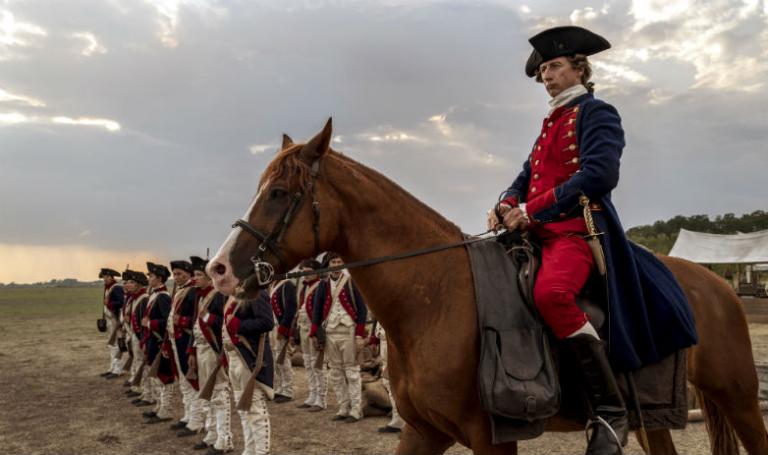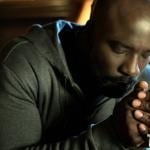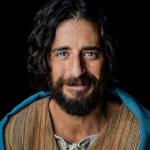
George Washington was a confessed assassin?
That’s one of the historical tidbits served up by Washington, a three-night, six-hour docudrama miniseries event on the first president, airing Sunday-Tuesday, Feb. 16-18, on History. The executive producer is famed presidential historian Doris Kearns Goodwin; British actor Nicholas Rowe plays Washington; and the narrator is Jeff Daniels, who played Washington in the 2000 A&E movie, The Crossing.
Among the interviewees are former President Bill Clinton, former Secretary of State Colin Powell, and historians Joseph J. Ellis, Annette Gordon-Reed, Jon Meacham and Alan Taylor.
Anyway, back to the assassination thing. As shown in the first episode, which focuses on the French and Indian War (1754-’63) — a k a The Seven Years’ War — young British officer Washington surrenders Fort Necessity in Pennsylvania to the French. Captured by the French, Washington signs a document written in French, a language he didn’t understand. Unfortunately, his Dutch translator proved inadequate to prevent Washington from unwittingly taking the blame for assassinating a French emissary — a blunder that haunted him for years.
During a roundtable discussion on Washington at the recent TV Critics Association Press tour, Goodwin said:
In all the books that I’d written before doing this miniseries on George Washington, my aim was always to bring the leaders to life by showing them making mistakes and being young and having misjudgments and growing into the role so that we just don’t think of them as on Mount Rushmore. And sometimes when they’re already president, they can often seem so distant and especially somebody like George Washington because he’s so long ago and the pictures of him are mostly when he’s older, and then you see him on the dollar bill.
…
The whole goal was to start when he was younger and show him in difficult situations and show him screwing up, in the sense, and then learning from his mistakes and becoming a big leader over time, and having a relationship with Martha and a relationship with the people on his team. So he’s not just an isolated individual. He’s with these people and learning from them over time. Warts and all. As somebody said, we’re going to show him warts and all.
It’s a fashion among many modern historians to make the not-quite-shocking discovery that the Founding Fathers were human beings, with all the contradictions and nuances we’d like to have attributed to ourselves. These men are often judged by the standards of an age in which they never lived (as we will undoubtedly be in the future, and it will be as unfair and unhelpful then as it is now).
Some of the Founding Fathers were slaveowners — including Virginian Washington — and the issue of slavery nearly derailed the entire effort to break free from British rule. In the interest of achieving the immediate goal of independence, that particular can was kicked down the road, where it eventually led to the horror and destruction of the Civil War — and echoes down to this day.
Some of the signers of the Declaration of Independence were ardent abolitionists; others were ardent slaveholders. And some, like Washington, owned slaves but, while they weren’t in favor of continuing the practice in perpetuity, were uneasy with the reality and consequences of abolition.
Goodwin said:
People are people. We’re going to be disappointed in them. One of the interesting lines in it, is when he does go to Philadelphia as the capital of the United States, and Philadelphia is a state where slavery was no longer allowed. This is way back.
So, the only way you could keep a slave in Pennsylvania was for six months and then you had to let them go. And so, he figured out they could just go back to Mount Vernon and then come back instead of emancipating them. And the nice thing was that what happens then is that one of the experts says, it’s disappointing that we find this in his letter, but he’s a man of the time. and he did free his slaves later.
What ultimately solidified Washington’s place as the Father of Our Country was not just that he led America to victory in the Revolutionary War, nor just that he became our first president. It’s that he chose to be a president instead of a king, and after two terms, chose to walk away from power. Aside from a blip during World War II with Franklin Delano Roosevelt, that practice has been the standard for presidents right up to the present.
Said Goodwin:
That’s the critical moment, that peaceful transition of power. He set it in motion because if he hadn’t, they would’ve all stayed til they died. And we would have a totally different system here.
Colin Powell says something where he said, “He didn’t need the power, he had the power.” This person had power, he had exerted power in the Revolution. And he really, I think it is true, that he didn’t really want to be, that he wasn’t craving to be, president.
Washington had the presidency handed to him, whether he wanted it or not. These days, it’s impossible to become president without wanting it very much and campaigning for it very hard — a reality that has hit all of Washington’s successors, starting with John Adams, the second president.
But that doesn’t diminish the importance of his willingness to walk away. In that, perhaps, Washington found his greatest glory.
Click here for the official site for Washington, which premieres on air at 8 p.m. ET/PT, and can be streamed from the History site if you have a cable subscription.
Image: History
Don’t miss a thing: Subscribe to all that I write at Authory.com/KateOHare













